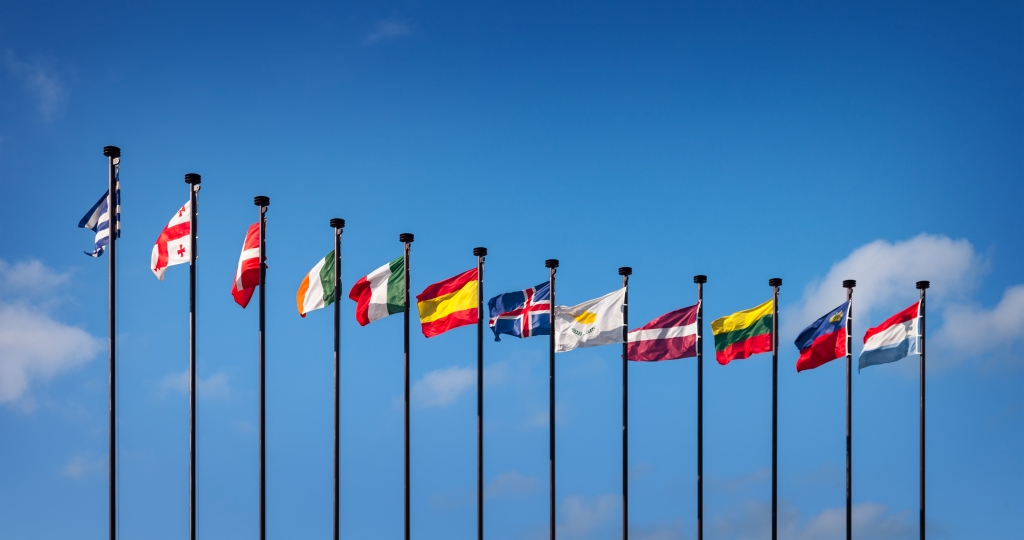The 5-month deadline milestone for the SUP Directive measures coming into effect has led to intense legislative debates and actions in some EU countries.
Germany to make reusable containers mandatory in restaurants
The German Federal Cabinet has confirmed an update to the Packaging Act. According to this, restaurants will in future have to offer reusable containers for drinks and meals to take away.
The amendment, which has just been introduced by the Federal Cabinet Amendment to the packaging law, also known as Packaging Act, specifically stipulates that restaurants must offer reusable containers for their take-away products from 2023. This change is based on a proposal by Federal Environment Minister Svenja Schulze.
According to the ministry, the reusable version may not be smaller or more expensive than the disposable packaging. In addition, the reusable containers must be taken back by the respective company after use.
In November 2020, the Bundestag and Bundesrat approved an ordinance banning some single-use plastics from use from July 3rd, 2021.
Czech Republic approved bill for plastic item use reduction
First announced on January 25th, 2021, the Czech government approved a bill designed to significantly reduce the use of plastic items.
The law, presented by Czech Environment Minister Richard Brabec and discussed by MPs from the lower house of Parliament, should come into force in July 2021 and put the Czech Republic in line with the 2019 Single-use Plastics Directive.
The new measure approved by the Czech government would mainly ban single-use plastic items, such as straws, plates, cutlery and polystyrene cups, and impose new duties on plastic manufacturers.
According to the Czech Ministry of Environment, approximately 1,8 billion of these disposable plastic products are consumed every year in the Czech Republic.
Greece banned single-use plastics use in the public sector
Natural Environment and Waters Secretary General Constantine Aravossis sent a memo to all state agencies for the abolition of single-use plastics as of February 1, 2021.
Specifically, as provided by law 4736/2020 – the law on the abolition of disposable plastics that was passed in Parliament in October 2020 – all public bodies (General Government bodies) have the obligation to stop supplying 10 specific types of single-use plastics, in line with EU directives.
According to the Environment and Energy Ministry, the public administration ban “is the first significant step toward ending the use of disposable plastics in Greece, expected to be fully implemented as of July 3, 2021.”
The February 1 regulation puts an end to purchase orders by state agencies for:
- plastic cutlery (forks, spoons, knives, chopsticks)
- plastic plates
- plastic straws
- plastic drink stirrers
- styrofoam food and drink containers and their lids
- all single use materials made of non-biodegradable plastic.
Bulgaria plans to enter ban on plastics in Bulgarian Waste Management Act
In January 2021, experts of the Bulgarian Ministry of Environment and Water commented that starting from this summer the use of 8 types of single-use plastic products is to be prohibited in Bulgaria.
The ban will apply to products made wholly or partly of plastic and generally intended for single use or used for a short period of time before being discarded. These are plastic tableware – forks, knives, spoons, plates, straws, as well as earbuds, beverage stirrers, plastic sticks, to which balloons are attached, food storage vessels made of expanded polystyrene and cups and products made of oxo-degradable plastic.
Croatian plastic smart cities and islands will stop using single-use plastics
The cities of Dubrovnik, Trogir, Stari Grad on the island of Hvar and Sali on the island of Dugi Otok will be the first in Croatia to reduce plastic waste and use alternative solutions by participating in projects by Split’s Association for Nature, Environment and Sustainable Development “Sunce”.
The Croatian law on waste should be adopted by July 3rd this year, when Croatia should ban single-use plastic products, such as cotton bud sticks, cutlery, plates, straws and stirrers.
Malta bans imports of single-use plastic
The importation of single-use plastics to Malta has come to an end starting with this year, as measures to prevent pollution come into effect.
This follows the completion of the public consultation and publication of legal notices on the 30th of December 2020, Minister for the Environment, Climate Change and Planning Aaron Farrugia announced. The Minister said that the implementation of the measure is ongoing, and all is according to plan.
The ban will apply to products such as plastic bags, cutlery, straws, plates, cotton buds, food containers, and stirrers.
UK House of Commons releases briefing paper on strategies for dealing with plastic waste
The House of Commons Library research service have released a useful and comprehensive briefing paper that outlines the current and future governmental strategies for dealing with plastic waste.
All relevant existing and proposed policy amendments relating to plastic waste are covered in the brief, alongside information concerning important consultatory stages and regulatory differences between the devolved administrations.
After detailing strategies specific to the UK, the report goes on to summarize EU plastics policies, including the Single Use Plastic Directive, voluntary initiatives, including the UK Plastics Pact, and the impact of Coronavirus.

